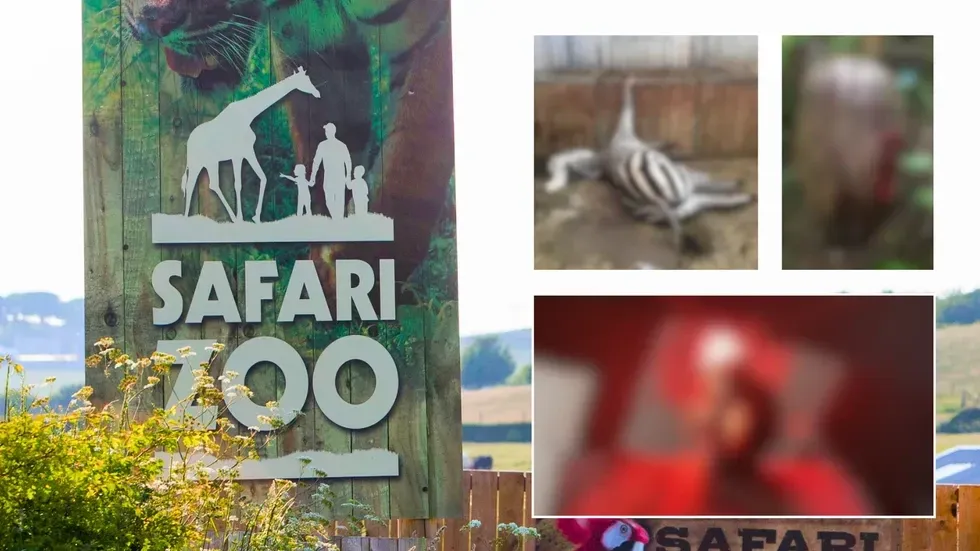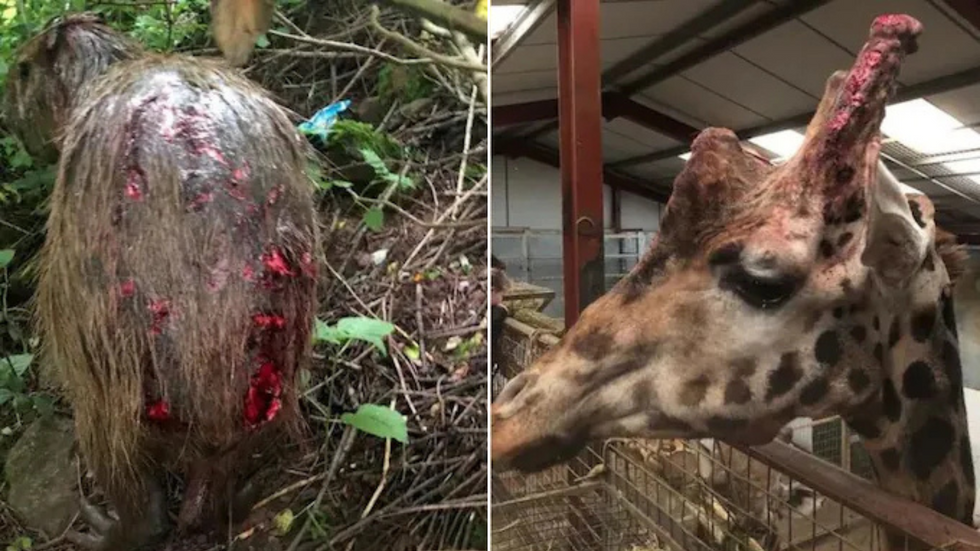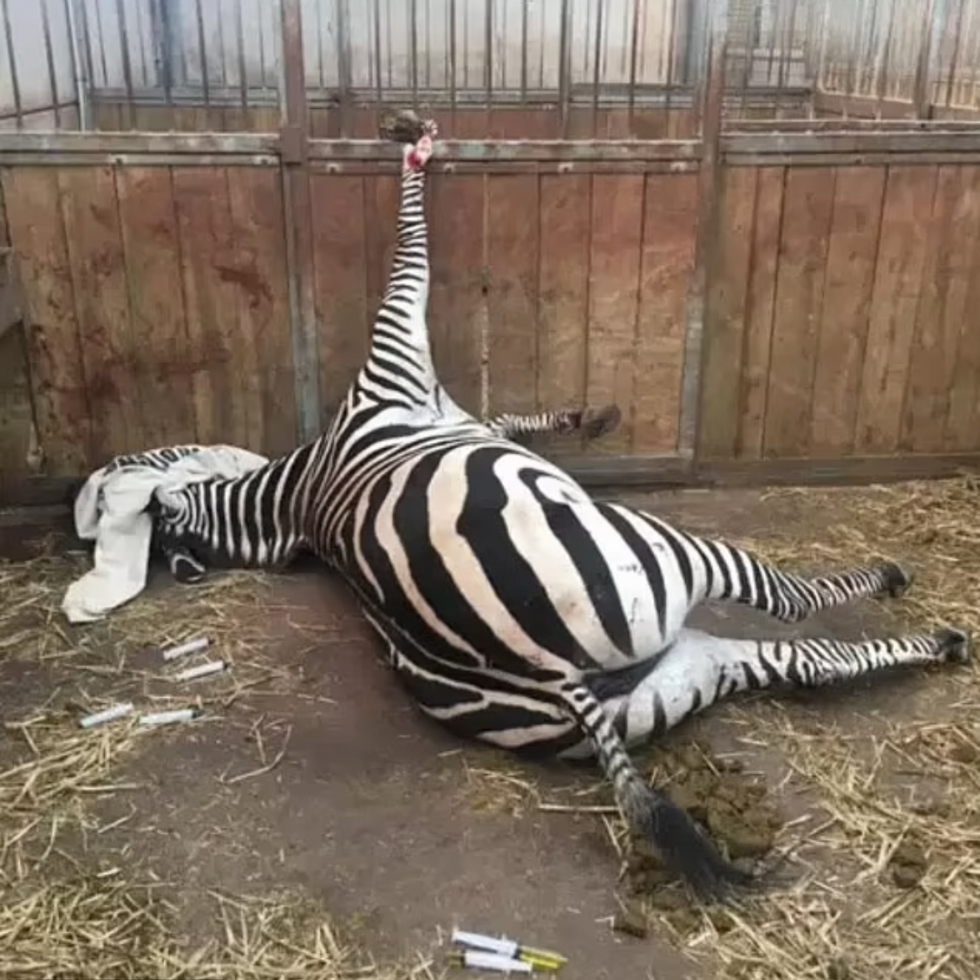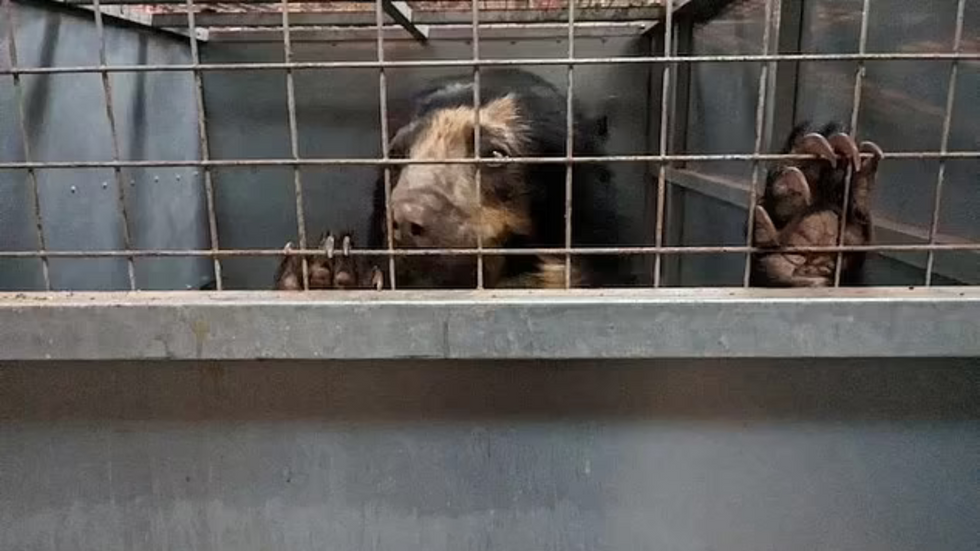Britain’s ‘worst zoo’ announces closure after nearly 500 animals died and keeper mauled
Britain’s worst zoo has announced its sudden closure following fresh animal cruelty allegations at the troubled Cumbria facility.
South Lakes Safari Zoo, which was previously fined £255,000 after a keeper was mauled to death by a tiger, will shut its doors at the end of the year.
The Dalton-in-Furness attraction has been plagued by controversy, including the deaths of hundreds of animals under its previous ownership.
The zoo was granted a new licence in 2017 after its millionaire founder David Gill agreed to cut ties with the facility.

Despite the change in management, recent photographs have emerged showing dead and injured animals at the site, prompting renewed concerns about animal welfare.
Recent photographs from October revealed a capybara covered in cuts, reportedly caused by fighting among the animals.
A zebra was also found with its hoof trapped in the bars of its enclosure and later had to be euthanised.
These incidents followed a troubling inspection report in July, which highlighted major concerns about the facility’s operations.
Among the safety breaches, inspectors discovered that a work experience student had been left unsupervised with dangerous animals.
The zoo’s current operators, Cumbria Zoo Company Ltd, had previously insisted they met all regulatory requirements.
However, a 2022 undercover visit by Born Free experts uncovered disturbing conditions, including monkeys clinging to enclosure edges to reach heat lamps and rhinos confined in cramped stalls.

An Andean bear was observed swaying and testing an electric fence with its paw.
The zoo’s troubled history includes the deaths of nearly 500 animals over just three years, revealed in 2017.
Among the tragic incidents was a jaguar that chewed off its own paw.
A rhino was crushed to death by its partner, while a giraffe had to be shot after collapsing.
The zoo’s former owner, David Gill, who appointed his Peruvian beauty queen third wife as head vet, faced severe criticism for “deplorable welfare standards.”
Multiple animals died in accidents, including some being run over by the zoo’s miniature train or electrocuted by fencing.
The ongoing struggles of the new management team were later documented by the BBC.

Conservation groups have welcomed the shock announcement of the zoo’s closure.
Chris Lewis, captivity research and policy manager at Born Free, said: “While we are pleased to see today’s announcement, exact details on the future of the animals and the site itself remain unclear.”
The wildlife charity urged all parties to ensure the welfare of animals remains paramount until suitable new homes are secured.
Freedom for Animals – formerly the Captive Animals Protection Society – described the closure as “amazing news”.
However, the group demanded guarantees that every animal would be rehomed to appropriate sanctuaries “where they can receive the care they deserve and live free.”
Both organisations expressed concern about the animals’ future welfare during the relocation process.
The zoo’s management announced plans to relocate operations to a 120-acre site in Tebay, approximately 40 miles away.

Karen Brewer, CEO of Cumbria Zoo Company Ltd, said the firm would now focus on running the new location as a nature and wildlife park.
She provided assurances about the animals’ welfare during the transition period.
“In transition, the animals will all continue to be looked after and given the best veterinary care,” Brewer told the BBC.
She confirmed they are working with multiple agencies to ensure appropriate rehoming.
“We are working with various agencies, including two zoo consultants, to find them all new homes that are appropriate for their longer-term needs,” she said.

